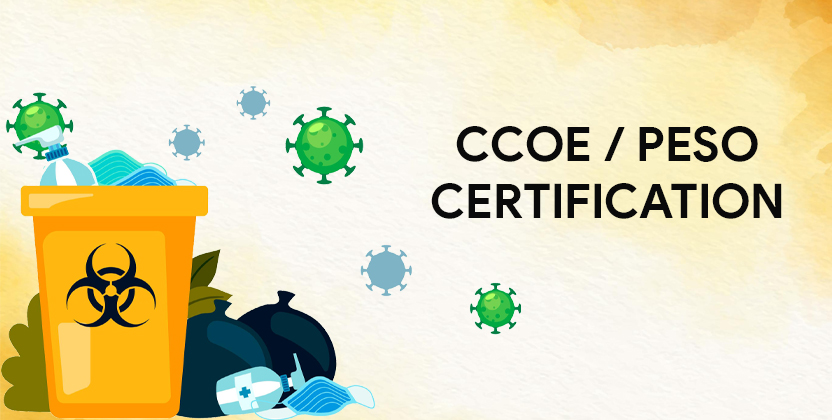PESO Certification
PESO, which stands for Petroleum and Explosives Safety Organisation, is a compulsory licensing scheme applicable to India's oil and gas sector. Formerly known as the Chief Controller of Explosives (CCOE) examination, PESO certification is rooted in laws like the Explosives Act of 1884 and the Petroleum Act of 1934, along with associated regulations like the Explosives Rules of 2008 and the Petroleum Rules of 2002.
CCOE PESO Certification.
Please Contact us: Ornate Quality Services, Phone: 011-41400596, Mobile: +919266333338, Email: chetan@ornatequality.com
PESO Approval
PESO approval is necessary for items available in the Indian market that operate with gases, are utilized within the oil sector, or are intended for use in environments deemed hazardous and/or corrosive. This encompasses explosion-resistant products, pressure vessels, and items designed for the oil and gas industry.
Please Contact us: Ornate Quality Services, Phone: 011-41400596, Mobile: +919266333338, Email: chetan@ornatequality.com
Products Covered Under CCOE/PESO Certification
DOCUMENTS REQUIRED FOR THE PESO APPLICATION
- Application form
- IECEx or ATEX certificates
- IECEx or ATEX test reports
- Product Technical drawings
- List of products
- Name and address of the Authorized Indian Representative (AIR)
- Extract from the commercial register / official company licence
- Organisation chart of the company including responsible contact persons for PESO (quality manager and AIR)
- Product brochures and technical data sheets of all components and test reports
- Sales figures of the affected parts for the last three years
- Annual sales figures for the last three years and projected sales figures for India
- Customer reviews
- Other documentation may be requested once application is submitted
Application Process
- ATEX/ IECEx - test reports (max. 2 years old)
- Submitting commercial data (sales numbers, client lists, client reviews)
- Preparation and submission of Application Documents
- Issuance of PESO Certificate
In most instances, the relevant regulatory body typically acknowledges existing certifications such as ATEX, IECEx, ASME, PED, or TPED, along with their corresponding test reports. Ideally, these documents should be current, complying with the latest standards and preferably not exceeding a two-year timeframe. For electrical products, obtaining PESO certification often involves an administrative process primarily focused on reviewing and approving documents. The range of necessary documents is usually extensive, although it may vary depending on the specific project, typically ranging from approximately 30 to 50 documents. Additionally, the regulatory authority requires information concerning the manufacturer, its Authorized Indian Representative (AIR), details about the product and its components, as well as pertinent commercial and plant information, alongside the requisite application documents. All test reports and documentation must adhere to the latest standards and ideally not be older than two years.
For more intricate scenarios, a factory inspection may be mandated, particularly for pressure equipment, including safety valves. Moreover, the regulatory body may also stipulate product testing within India under certain circumstances, such as the unavailability of test reports or if the submitted documentation is outdated.
It's important to highlight that, similar to many other certifications in India, having a local Authorized Indian Representative (AIR) is necessary for the application process. For PESO certification, the AIR must possess technical qualifications and training relevant to your product, and they must be under contractual obligation with the manufacturer for at least 5 years. Various avenues exist for obtaining an AIR, including through the manufacturer's own subsidiary or sales office in India, as well as through local importers or distributors.
Conslusion
Many products necessitating certifications like IECEx, ATEX, ASME, PED, or TPED, or those intended for use in hazardous environments, typically mandate PESO certification in India. PESO certification applies primarily to electrical ex-components and pressure equipment. Importing or exporting explosives demands a license issued under the Explosives Rules, 2008, permitting only explosives classified as "Authorized" under these rules for importation/exportation.
This approval can be obtained within 3 months from the date of submitting documents.
 Noida, Delhi NCR
Noida, Delhi NCR
 Mon-Sat : 09:30 AM - 06:00 PM
Mon-Sat : 09:30 AM - 06:00 PM



